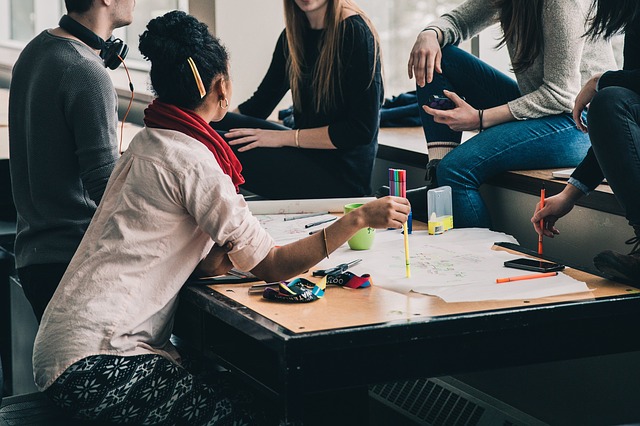Tests can be a bit challenging. There are a lot of consequences that come into failing them. Some major tests like the SATs or your final exams are life-changing, which means that a pass, a fail, or a high score can mean different results that will obviously affect your future. But it doesn’t end there, some are desperately trying to find effective study tips in college too! It’s not rocket science that you need some effective study tips to ace those crucial exams that have been bothering you.
Obviously, before you take a test, you should make sure that you prepare sufficiently. Consider that the study tip no.1!
Is There any Bullet-Proof Method for Preparing for Exams?
Studying is something that should be considered as a habit for students. Each one of us has different study methods, though, which is unfortunate. This means that there is no one-size-fits-all approach to learning your lessons. In other words, some study tips might work for you but may not work for someone else. There are lots of study methods that you can try and experiment with.
We thrive in different environments, and it is quite hard to learn in a setting where you are not comfortable. You need to find out whether you are in an optimal condition to learn or not. It is also quite difficult to stay motivated during Exams week, given that there is too much stress involved together with being tired of other daily activities.
We all thrive in different environments, and that’s the reason why students use different methods when it comes to studying for exams. It’s also hard to stay motivated during Finals week comes, especially when we are all tired and sleepy from the daily grind.
To help you, here are some study tips for finals that might help you score higher on your exams.
8 Effective Study Tips that You Can Count On!
1. Ease Up: Take Breaks Periodically
Your brain needs some tender loving care. The more exhausted it is the day of your exam, the poorer it will function. Make sure that you take regular breaks as this will ensure that your brain is at its tip-top shape. For every hour of intense studying, do a 5-minute walk. Anything that will get you out of your study corner.
Some students might ignore it but this is the most important study tips of all.

2. Form Up Study Groups
Have you ever felt overwhelmed while completing the whole syllabus? Don’t worry that is quite common!
So, what should you do?
A group environment has been found to help students get into a great studying groove. Set up a study group with your classmates and a group of friends. Your friends may also have notes that you do not have. Being in a group setting will help you trade notes and lectures so you all can be prepared. Skipping class is unavoidable, and during your absence, you will most likely miss out on a few key points.

Just be warned that you might get too comfortable with your friends and just hang out instead of study. I recommend going to a study place like a library so you can focus.
Another fun idea you can do with your friend is to quiz each other and hold word games, for example. This helps you learn while also allowing you to spend quality time with your friends.
3. Take Help from the Internet
As a student, you should know that the internet is your friend. It is filled with information. If there is a lesson or a subject that you did not understand, it takes only a fraction of a second to search for it with Google.

There are also a lot of free online resources available for you, such as online courses and video documentaries which you can use to learn more about your subject.
4. Charge Up Your Brain: Drink Caffeine!
Coffee is a student’s best friend. When you are studying, you would need some coffee to wake up, especially on late nights when you’re up spending hours on a project or a paper.

Aside from waking you up, the research found that drinks rich in caffeine such as coffee and tea help keep your mind alert and susceptible to receive information.
5. Omega-3 Fatty Acids – Your Brain Booster!
Your anxiety levels during exams are sky-high. By ingesting food that is rich with Omega-3 and Omega-6 fatty acids will help reduce your anxiety and help you answer the exams perfectly.

Fish, Nuts, and Olive Oil are rich with Omega-3 fatty acids, which are known for their brain-boosting potential.
6. Use Visual Aids for Better Concentration
When you make visual aids like charts and diagrams to help you learn, you are also going through your coursework and learning whatever lesson you need to learn. You can consolidate all your notes into outlines so you can revise them regularly. It would help you concentrate better.

Images are much easier to recall than just plain words. This way, you can recall everything you need to know during the exam.
7. Take a Step Back: Practice Previous Questions
Practicing on previous exams given out by the same professor would be beneficial for you as it would give you some insights on what your professor tends to favor in terms of questioning methods and important lessons.
Make the best of being friends with your seniors and ask them for tips on how to ace your exams. Practice makes perfect, and this holds true with tests. When you answer exams, you also go through the process of answering. You can even make it much better by adding time pressure so you can get used to it.
It doesn’t matter whether you are looking for study tips for college or study tips for high school, or even middle school. This approach will give you an immense advantage.
8. Discover New Learning Styles
Okay, time for the last study tips. There are many ways that you can learn. Your brain receives information through different means, which means that there are many ways that you can learn. Some find auditory learning effective while others work better with visual learning. Others even find kinesthetic learning as the most effective study method for them.
If you are a homeschooler, trying out new methods will help you diversify your learning approach.
Auditory learning is processing information quickly through their hearing. Reading notes aloud and discussing them with a group of friends is one of the best ways to go through with auditory education. Everyone’s phonemic awareness, for example, is learned through auditory learning.
On the other hand, visual learners are people who learn faster with visual aids and reading. Recording your lectures will also help you learn. Reading your notes and creating visual graphs and charts will help you retain all the information you need to ace your test.

Drawing diagrams of your lessons will aid you in remembering key points that are important to get the highest mark possible. This works like charm if you are looking for best study tips for visual learners.
Kinesthetic learning is a new method. Role-playing or building models is one way to retain the course lessons that you need to learn.
Now you can take part in online Spelling Bee too! Check out the SBO section on Spellquiz today! This game features words coming from the spelling bee list!
Also, try this english vocabulary quiz to understand your current skill level! Try these spelling tests to master English spelling! Also, don’t forget to check the complete list of sight words for mastering spelling words by grade.